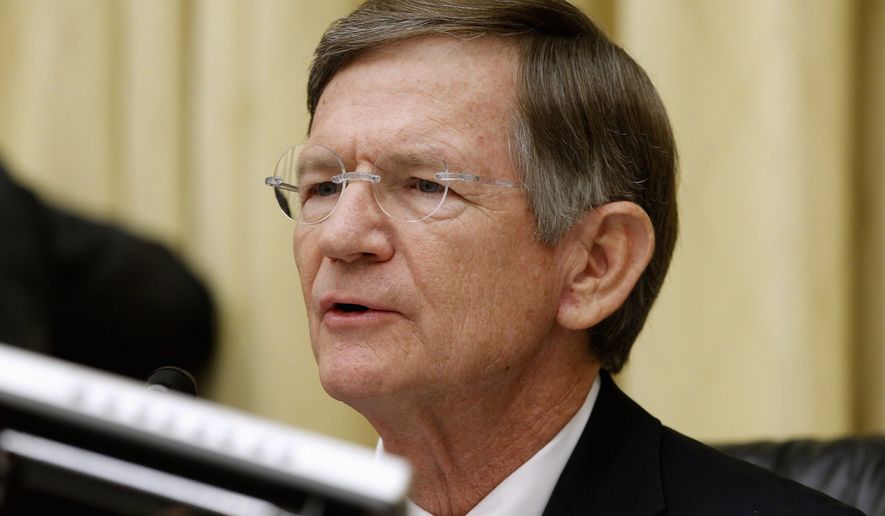Congressional leaders on Tuesday expanded their investigation into Moscow’s use of social media to meddle in the 2016 election demanding that Twitter, Facebook and Google hand over any Russian-bought ads targeting the American debate over fracking and energy policy.
The four-page letters from the House Committee on Science, Space and Technology, shared with The Washington Times late Tuesday, were sent to Larry Page, CEO of Google’s parent company Alphabet; Facebook founder and CEO Mark Zuckerberg; and Jack Dorsey, CEO of Twitter. The letters request the firms provide “any and all” information regarding the Russian purchasing of “anti-fracking or anti-fossil fuel” advertisements from January 2010 to the present.
Last week, Facebook agreed to provide Capitol Hill investigators with more than 3,000 Russia-linked social media ads, worth an estimated $100,000, that were financed by fake accounts from June 2015 to May 2017. Many of the fake ads targeted hot-button religious and racial issues, apparently in a bid to widen U.S. political divides and influence the debate.
“In light of Facebook’s disclosure of over $100,000 in social media advertising associated with Russian accounts focused on the disruption and influence of U.S. politics through social media,” committee chairman Lamar Smith, Texas Republican, wrote on Tuesday, “it is likely that Russia undertook a similar effort using social media to influence the U.S. energy market.”
“Social media platforms, such as Twitter and Facebook, have the ability to serve as an effective propaganda arm conveying specific messages to geographically targeted audiences,” Mr. Smith wrote. “The committee is concerned that divisive social and political messages conveyed through social media have negatively affected certain energy sectors, which can depress research and development in the fossil-fuel sector and the expanding potential for natural gas.”
The committee has requested the social media giants respond by October 10.
Russian social media propaganda has become a prime focus of multiple congressional inquires into the Kremlin’s suspected meddling in the 2016 presidential election.
Regarding America’s environmental and energy debate, the Russian accounts appeared to align themselves with the anti-fracking movement for fear that revolutionary drilling process would cut into Moscow’s global gas profits, analysts say.
Covert propaganda investigators have told The Washington Times that Moscow does not care whether it’s allying with Democrats or Republicans in its influence campaigns.
Mr. Smith’s panel has been tracking Russian anti-fossil fuel and anti-fracking misinformation for some time. This past summer, the committee demanded that the Trump administration investigate a Bermuda-based shell company with suspected Kremlin ties accused of trying to move millions of dollars to anti-fracking activists across the U.S.
“If you connect the dots, it is clear that Russia is funding U.S. environmental groups in an effort to suppress our domestic oil and gas industry, specifically hydraulic fracking,” Mr. Smith said over the summer.
The Bermuda fracking case, according to U.S. finance officials, underscored the complexity of recent Russian influence operations. Some of the misinformation schemes and shell company structures are so complex, investigators call them “matryoshkas,” for the Russian nesting dolls that hide one inside the other.
A recently declassified report from the Office of the Director of National Intelligence concluded that Russia’s state-owned media outlet Russia Today, or RT, also engaged in a vigorous anti-fracking campaign to benefit the leading Russian state-owned energy firm, Gazprom.
In recent years, NATO chiefs have also criticized Russia for conspiring to undermine new energy technology in Europe by supporting anti-fracking protesters in Romania and Bulgaria. Former Secretary of State Hillary Clinton publicly criticized Moscow for creating what she called “phony environmental groups” opposed to pipelines and fracking.
• Dan Boylan can be reached at dboylan@washingtontimes.com.




Please read our comment policy before commenting.